Wednesday Feb 18, 2026
Wednesday Feb 18, 2026
Wednesday, 17 July 2024 11:59 - - {{hitsCtrl.values.hits}}
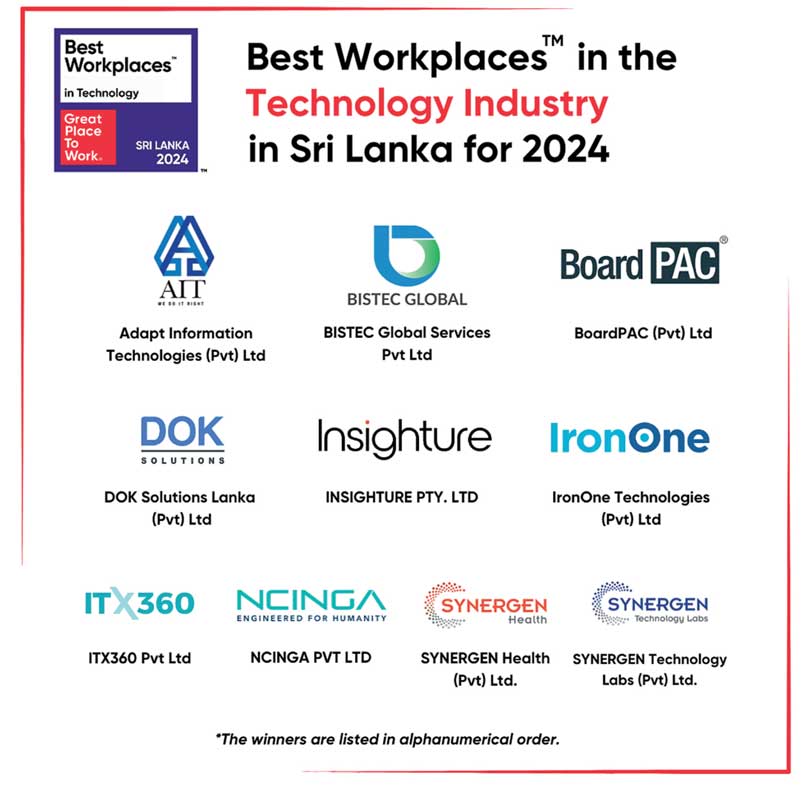
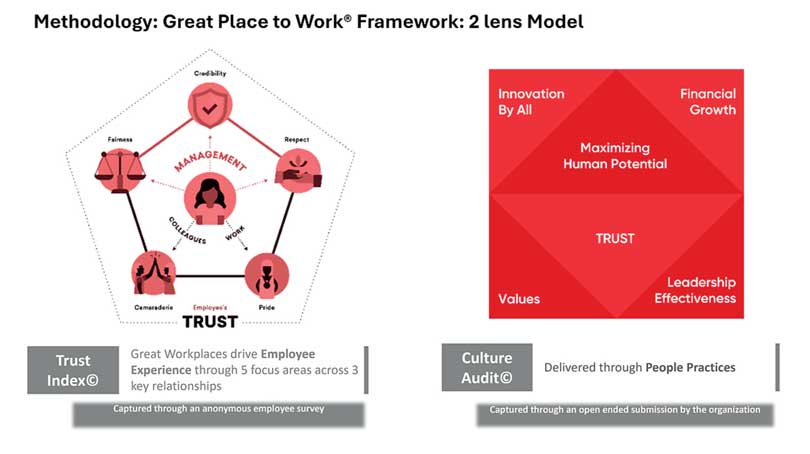
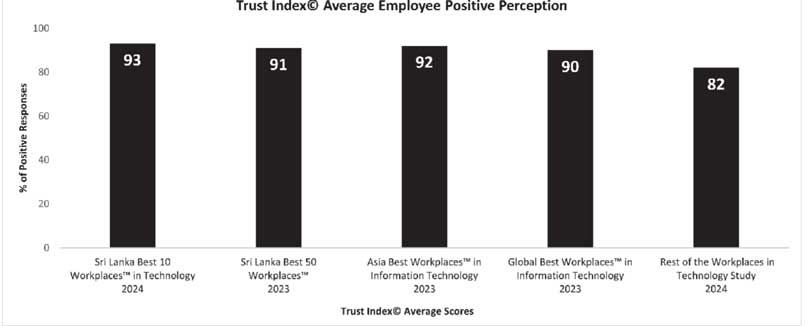
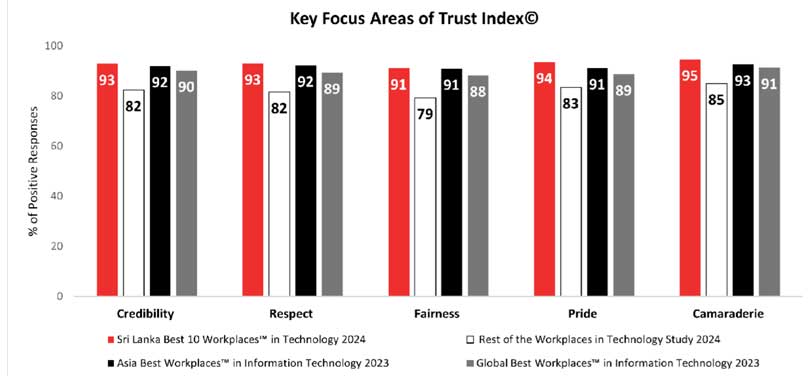
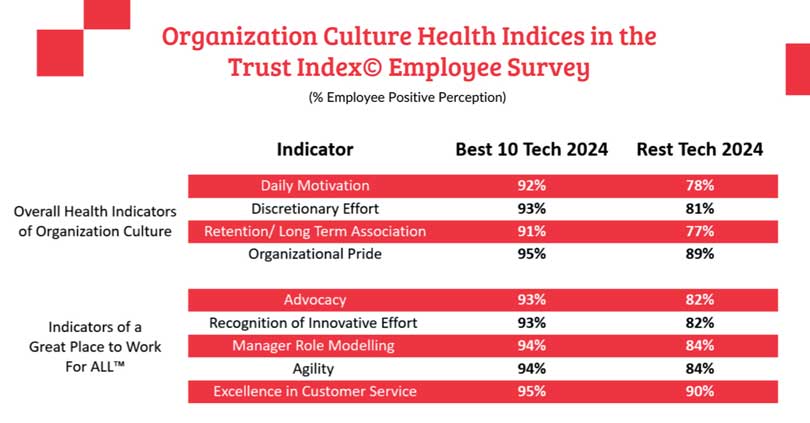
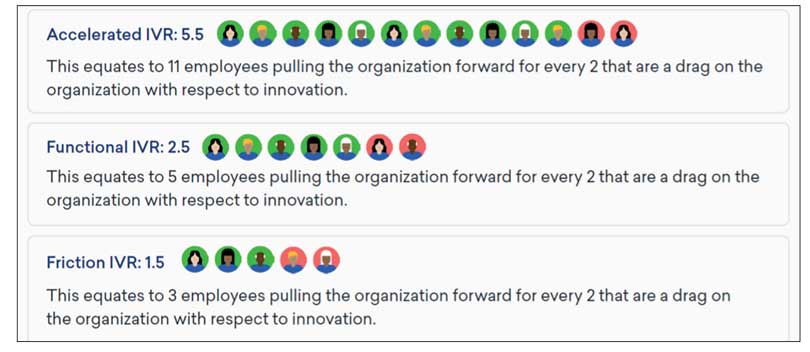
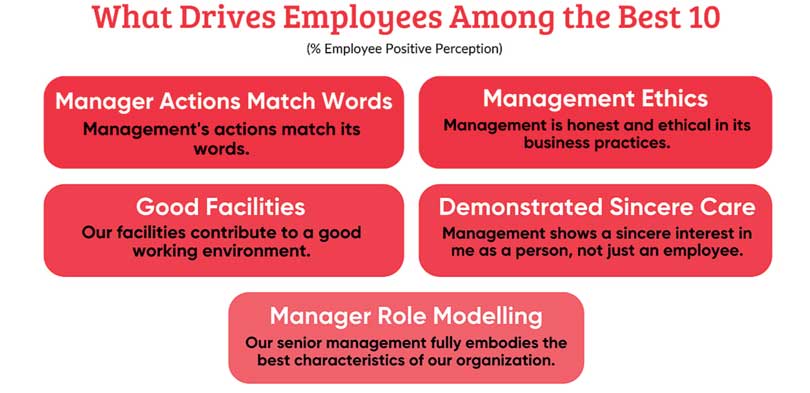
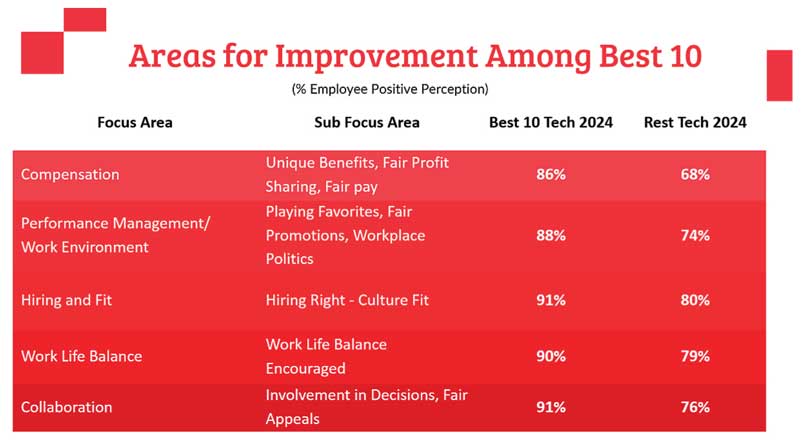
By Great Place to Work in Sri Lanka
Crafting the Workplace Culture ‘Code’
The technology industry has a powerful impact on transforming the world. Delivering this global digital transformation to the nation is Sri Lanka’s technology industry comprising of IT and IT enabled services. This sector employs a dynamic workforce known for its agility and technical skill sets.
Given the importance of this industry Great Place to Work in Sri Lanka conducted a study into employee perception on workplace culture for the fifth consecutive year to unveil the Best Workplaces and identify key trends for tech organisations to navigate today’s competitive world.
The Sri Lankan tech sector mirrors global adaptable workplace trends such as remote working, freelancing and array of flexible benefits. However, it faced several challenges in 2023. Economic crisis-driven brain drain, pressure to maintain productivity in a globally competitive market with the remaining workforce, rising cost of living and new government policies and taxes were among them. The stress of the economic situation on organisations was also evident in the study results and therefore taking immediate steps to tackle the eroding trust in the sector is crucial.
Study summary
During this year’s study cycle, over 6,000 employees from the industry were surveyed with an average response rate of 90%. This study data helped to determine the 10 Best Workplaces in the Technology industry that create a consistently positive workplace experience across the organisation and provided the data for insights in this article. Organisations that were Great Place to Work Certified from May 2023 to May 2024 were considered for this study.
Methodology for selecting the Best Workplaces
Great Place to Work is the globally recognised authority on studying and identifying Best WorkplacesTM. Over the past 30+ years it has studied Great Workplaces and expanded its reach to over 150 countries and territories. Sri Lankan study is based on the global model and a rigorous methodology, which has been researched, tested, and carried out in similar studies worldwide.
The selection follows the global ‘Great Place to Work For AllTM’ methodology. 85% of the evaluation is based on the experience of trust and employees reaching their full human potential as part of their organisations – no matter who they are or what they do. These experiences are analysed in relation to each company’s size, workforce demographics and industry norms. The remaining 15% of the evaluation is based on all employees’ daily experiences of innovation, their organisations’ values, and the effectiveness of their leaders to ensure a consistent positive experience.
The measurement tool used to assess workplace culture is based on two lenses; Firstly, the Trust Index employee perception survey is conducted to understand the employee workplace experience and constitutes 75% of the total organisation score. In Sri Lanka, only organisations certified (for a period of 1 year) as a great workplace with more than a 70% minimum positive employee perception are considered for Best Workplaces studies in that year. Organisations are measured on whether employees Trust the people they work for, have Pride in work they do and share Camaraderie among people they work with.
Secondly, the practices and processes in place to drive the employee experience are evaluated through a central submission termed the Culture Audit which constitutes the remainder 25% of the total score. Results for each of the listed organisations are audited to maintain accuracy and validity of its inclusion in the Best Workplaces List.
Results overview
Navigating Trust Erosion: The overall Trust Index average (Figure 1), summarises employee perceptions in Technology workplaces across 58 statements.
Sri Lanka’s Best 10 Workplaces in the sector not only outperform National, Asia and Global benchmarks, but the Trust Index also shows an upward trajectory of 1 point compared to 2023.
Additionally, the gap between the Best and the Rest in Tech in Sri Lanka widened from 4 in 2023 to 11 percentage points in 2024 highlighting an erosion of trust. The study participation consisted of 65% repeating organisations. It was noteworthy that unlike previous years a majority (64%) of the repeaters had dipped in positive employee perception resulting in a lower average for the Rest.
Key focus areas
High Five for Trust: As featured in Figure 2, the overall Trust Index© is built on five key pillars – Credibility, Respect, Fairness, Pride and Camaraderie. The Best 10 show improvement year-over-year in all 5 focus areas.
Contrary to national and other industry norms where pride is usually the highest perceived focus area, in the technology sector camaraderie is the highest. Camaraderie is the highest scoring indicator even among the Rest, however at 10 points below the Best. The consistency of experience of camaraderie among the Rest and across the industry in Sri Lanka is low. Many employees are working remotely in isolation with less connectivity to an environment of team support and camaraderie. The Best are taking steps to increase periodic physical and virtual engagement and keep a strong connection within teams through buddy systems and manager check-ins.
The lowest scoring focus area is usually Fairness, and it is no different in the tech industry as well. A concerning gap of 12 points separates the Best from the Rest.
Health indices for organisational culture
Staying Healthy “For ALL”: Figure 3 highlights the key indices of a healthy organisational culture and being a ‘Great Workplace For All’ and reflects outcomes of an organisation that encourages a consistently positive experience at work across the workforce. Sri Lanka’s Best in tech demonstrates high employee perception across all indices.
Organisational pride, reflecting a sense of connection to the company as well as employee perception around excellent customer service are strongest among both the Best and the Rest.
Retention, signifying a desire for long term association with the organisation, remains the most challenging criterion for Sri Lankan and global tech organisations. The biggest gaps (14 points) between the Best and Rest are in retention and daily motivation to come to work. These areas have dropped by 8-9 points among the rest in Sri Lanka when compared to 2023 but increased marginally among the Best.
Demographic highlights
Age, not Gender Equality: Age seems to play a bigger role than gender in how employees perceive their workplaces, in Sri Lanka’s tech sector. Younger employees (under 35 vs over 35 years) are less likely to feel they receive fair pay (12% gap), fair share of profits (9% gap), and encouragement in work-life balance (9% gap).
Innovation by All
Engaging for Innovation: A key outcome of a ‘Great Place to Work for All’ is the increased capacity to support organisational objectives of growth and sustainability through innovation by all employees. Great Place to Work® measures the roots of an ‘innovation by all’ culture. Active stimulation of these roots is critical to encourage the continuous development process.
Sri Lanka’s Best 10 in tech are innovation by all champions compared to the rest. The Best actively involve employees in decision-making more leading to a wide 16-point gap over the Rest. Additionally, the perception of employees among Rest around ‘celebrating people who try new and better ways of doing things’ has room to improve as well.
Innovation Velocity Ratio: Great Place to Work research shows the Innovation Velocity Ratio (IVR) is a simple-but telling metric of an organisation’s agility and invention. Organisations with the highest IVRs enjoy higher levels of discretionary effort, less risk of turnover, greater adaptability, and faster revenue growth. Put simply, IVR is a figure representing the number of employees who feel willing and able to innovate in relation to the number of employees who do not feel able to innovate. There are 3 categories organisations fall into based on IVR as shown in Figure 4. This year Best shows an accelerated IVR of 8 versus the Rest with an IVR of only 2.
Key drivers
Leaders hold the keys: Key Drivers are the specific areas from the year’s Trust Index© study that are most closely linked to employees considering their workplaces as great in 2024 (Figure 5). Perceptions in these areas drive the long-term emotional connection with the organisation.
Given the current BANI world, leaders who personify the best characteristics gain the trust of employees over the rest. When asked about the level of confidence employees had in their management’s judgement 69% of employees among the Best said ‘a Great Deal’ versus only 43% among the Rest. A telling metric. It was also observed that employees at the “Rest’’ feel their leaders don’t always deliver on promises, with a 15-point wide gap between the Best and the Rest.
Key differentiators
Sharing and Caring at the Best: The data in Figure 6 highlights key areas where the Best outperform the Rest. A closer look shows that compensation and benefits is one area in which employee perception among the Best surpasses the Rest. The Best have been able to maintain a sense of fairness around this area and share back with their employees, thus avoiding trust erosion compared to the Rest.
The Best do better at caring to demonstrate a sense of respect to employees by collaborating on decisions that affect their jobs and showing appreciation for employees’ contribution when compared to the Rest.
Areas of strength and for improvement
A mixed bag of feelings: While some areas can be clearly bucketed into strengths or weak areas, there are some areas that are of mixed perception among employees.
Employees at the Best demonstrate strong overall pride in their organisation. While employees have a greater readiness to speak proudly of their organisation, they’re more hesitant to recommend others to join and some are less likely to see themselves staying long-term, suggesting the need to bridge the gap between pride vs. commitment.
Similar to Pride, ‘responsibility & empowerment’ shows mixed signals even among the Best. 95% of the employees of the Best feel like they have autonomy at work, but there is relatively less consensus about being given enough responsibility.
Key strengths of fun and functionality: Good facilities that contribute to an effective working environment enabling employees to perform at their best are a key strength among the Best.
Furthermore, the Best go beyond facilitating only work. An impressive 96% of employees report a fun and celebratory work environment. Some business leaders might roll their eyes at the relevance of creating a fun workplace, but data shows that employees heavily benefit from having a good time at work. Fun has been found to be an important driver of well-being in the workplace, and across all generations as well.
Key areas to improve – Being better at being Best: While the Best outperform the Rest significantly on average in these areas, there is still much room for improvement among the Best as well and these areas are highlighted in Figure 7.
Compensation & Benefits is the number one area employees perceive is inadequately addressed. It is natural when comparing the local earning potential and benefits to other countries around the world for employees with a skill set that is applicable globally. A relatively lower and inconsistent perception in fair performance management goes hand in hand with it as employees vie to improve their career and earning potential through performance.
Attracting and retaining top talent is a global issue in most industries (McKinsey, Forbes, Deloitte 2023). For Sri Lanka’s Tech industry however, the ongoing brain drain exacerbates this issue, leaving the country with a shortage of highly skilled professionals and a reliance on mid-level and untrained new hires, which can contribute to work-life balance issues and could hinder the sector’s growth and innovation potential. These inconsistencies in employee experiences need to be addressed by all organisations in the sector.
Conclusion
Creating strategic workplaces in this knowledge-based sector is crucial. Workplace culture should be measured and action taken to ensure it supports the implementation of strategy instead of impeding it. Clear communication on compensation and career progression is paramount to navigate the currently uncertain waters of the Sri Lankan economic status in the country. Well-defined systems that articulate promises clearly and track delivery will build trust and reduce frustration. Moreover, empowering employees is key. Actively capturing concerns and addressing needs fosters respect, while collaborating with employees leverages skills and keeps teams motivated. By embracing these areas, Sri Lankan tech organisations can create a resilient work environment, attracting and retaining talent, enabling it to contribute to Sri Lanka’s economy.
Great Place to Work’s mission is to help every workplace become a Great Place to Work For All so that organisations can maximise human potential through a High-Trust, High-Performance CultureM that drives business, improves lives, and creates a better society. No matter where you are in your journey, you are invited to join in to discover and drive your employees’ positive perception and contribute to achieving the vision of making Sri Lanka a great place to work.
Please contact Great Place to Work© in Sri Lanka at
+94 11 454 5594/0770 071 055 or
visit www.greatplacetowork.lk for more information.